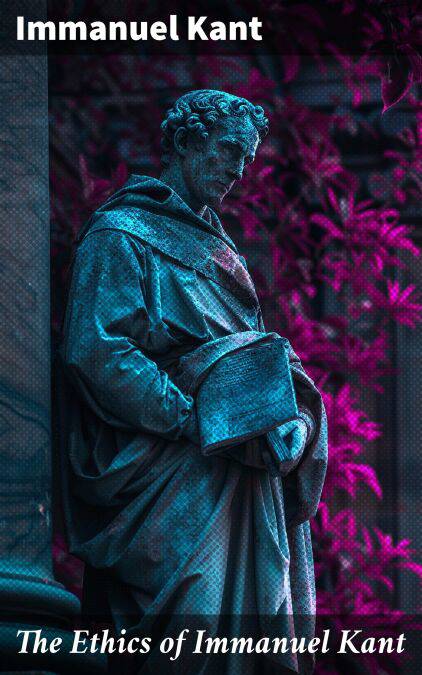
- Afhalen na 1 uur in een winkel met voorraad
- Gratis thuislevering in België vanaf € 30
- Ruim aanbod met 7 miljoen producten
- Afhalen na 1 uur in een winkel met voorraad
- Gratis thuislevering in België vanaf € 30
- Ruim aanbod met 7 miljoen producten
Zoeken
The Ethics of Immanuel Kant E-BOOK
Metaphysics of Morals - Philosophy of Law & The Doctrine of Virtue + Perpetual Peace + The Critique of Practical Reason: Theory of Moral Reasoning
Immanuel Kant
E-book | Engels
€ 1,99
+ 1 punten
Uitvoering
Omschrijving
In "The Ethics of Immanuel Kant," the reader is invited into the intricate moral philosophy that has profoundly influenced modern ethical discussions. Kant meticulously delineates his deontological ethics, emphasizing the significance of duty, autonomous will, and the categorical imperative. His literary style is marked by rigorous argumentation and a meticulous structure, reflecting his Enlightenment context where reason was revered as the foundation of human morality. Kant's work invites a critical examination of morality beyond mere consequentialism, asserting that moral laws must be universalizable and act as the guiding force in human actions. Immanuel Kant, a pivotal figure in Western philosophy, developed his ethical theory during a time of societal upheaval and intellectual ferment at the onset of the modern age. His educational background in mathematics and logic profoundly shaped his philosophical inquiries. Kant grappled with the implications of free will, rationality, and the nature of human existence, leading him to this seminal work that seeks to establish an ethical framework grounded in reason, rather than empirical consequences. Readers seeking to engage with fundamental questions of morality and human conduct will find "The Ethics of Immanuel Kant" essential. Its enduring relevance offers profound insights into ethical reasoning applicable not only in philosophical discourse but also in contemporary moral dilemmas. This text serves as a cornerstone for anyone wishing to explore the interplay between freedom, duty, and ethical imperatives, making it a vital addition to the library of any serious student of philosophy.
Specificaties
Betrokkenen
- Auteur(s):
- Vertaler(s):
- Uitgeverij:
Inhoud
- Aantal bladzijden:
- 805
- Taal:
- Engels
Eigenschappen
- Productcode (EAN):
- 8596547804970
- Verschijningsdatum:
- 7/01/2024
- Uitvoering:
- E-book
- Beveiligd met:
- Digital watermarking
- Formaat:
- ePub

Alleen bij Standaard Boekhandel
+ 1 punten op je klantenkaart van Standaard Boekhandel
Beoordelingen
We publiceren alleen reviews die voldoen aan de voorwaarden voor reviews. Bekijk onze voorwaarden voor reviews.











